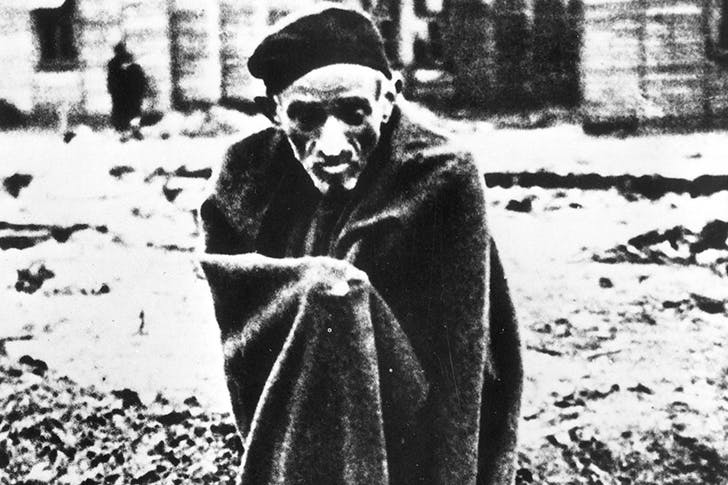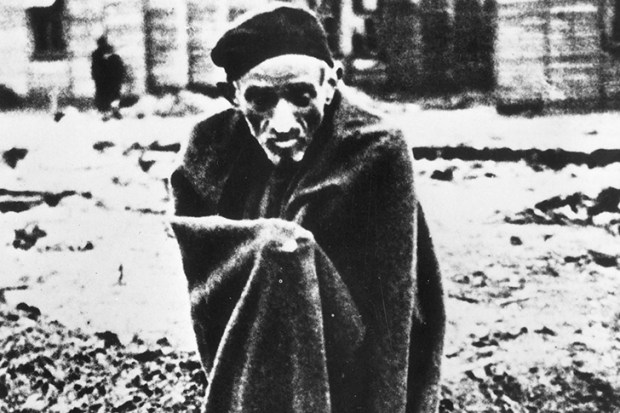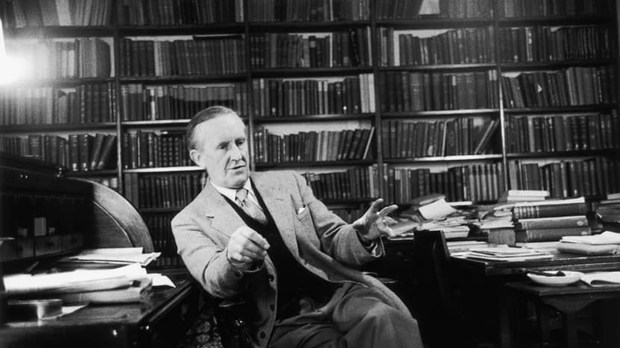Seventy years after the Nazi Holocaust, against the background of a rich and varied literature, Laurence Rees has achieved the unexpected: a magisterial book that consolidates what has come before and manages to offer fresh perspectives. With Brexit, Donald Trump and Marine Le Pen now centre stage, it also offers a timely reminder of the dangers that are unleashed when the path of demonisation and discrimination is embraced in the name of national well-being. As Primo Levi wrote in 1947, from his own experience, when the ‘unspoken dogma’ of group targeting becomes ‘the major premise in a syllogism, then, at the end of the chain, there is the Lager’.
Like Levi, Rees understands the Holocaust as representing ‘a singular horror in the history of the human race’, and he is particularly well placed to guide us through the multitude of difficulties it presents. One of the world’s foremost historical documentary film-makers, he has spent a lifetime thinking about the Nazi era, crafting balanced, rigorous and reflective films that have won plaudits and prizes. In the course of that work, he has mined a rich seam of human experiences. He has met and interviewed a vast number of people who occupied the front rows of the times of which he now writes, as perpetrators, victims and observers. He is more familiar than most with the theories that seek to explain what happened, and the lessons that might — or might not — have been learned.
He is also a seriously good storyteller — and this is his masterwork. It reaches that pinnacle precisely because he has anchored vast and grotesque stories in individual experience, an approach that gives a book passing across well-trodden ground the immediacy and power of personal testimony.The work is also imbued with its author’s mature reflection; and the warning he implicitly offers to our current crop of politicians, who seem to have had a collective loss of historical memory, is plain: your words and your actions truly matter.
There is a simple reason that so many people watch the documentaries, read the books and devour the personal accounts: the events of this period go to the heart of who we are as human beings, and they remain, even with the passage of so many years, without simple or satisfactory explanations. The two central questions are: how could it have happened? And could it happen again? As to the first, we sense that the events that occurred between 1933 and 1945 have their roots in diverse factors, from elevated matters of state policy and history to the most personal of psychological elements. As to the second question, our television and computer screens tell us on that such horrors do continue — albeit in different shape and form — as one group is pitted against another.
Rees poses his own questions. ‘What were the reasons the Nazis decided to exterminate an entire group of people? Why did they take millions, and gas them, shoot them, starve them, beat them to death — and kill them by whatever means possible? What was the place of this genocide amid the catalogue of other horrors that the Nazis were responsible for?’
In seeking answers he paints a vast canvas across time and place. His approach is essentially chronological, identifying particular milestones that led from a letter written by Hitler in 1919 — the point at which Rees’s book opens — to the appalling death marches out of the concentration camps for tens of thousands of prisoners in January and February 1945. What came between — the rise of the Nazis, the logic of the Nuremberg laws, the killing of the disabled, the shifting of populations to the east, the mixing of war and deportation, the mass extermination of human beings on an industrial scale — is minutely detailed.
The particular personality of Hitler plays a central role in Rees’s assessment, along with the total capture of the machinery of government, and the removal of domestic legal protections for minority groups. At that time — and it may seem remarkable —international law had nothing to say about the treatment by a state of its own population, and there was no body of rules known as the international law of human rights to offer protection for every human being.
But nor does Rees ignore the vital involvement of a mass of individuals, in Germany and in many other countries across Europe. For these participants and observers — the foot soldiers, the oil and the cogs — he suggests motivational factors that included revenge, expiation, anti-Semitism, opportunism and self-enrichment. These factors are reflected in other works that focus on the minutiae — the young lawyers who populate Sebastian Haffner’s remarkable Defying Hitler (2000), for example, or the musicians in Fritz Trumpl’s fascinating and more recent The Political Orchestra: The Vienna and Berlin Philharmonics during the Third Reich (2016). Erna Krantz, a Nazi supporter in Germany, offers a chillingly honest explanation of her own passivity, faced with a neighbour and friend newly forced to wear a Jewish star on her coat: ‘I was so sorry about that… such a nice woman… but really, just like today, you can’t help everywhere.’ Seeking to understand the rare instances where a local population withheld cooperation from the Nazis — Rees cites the singular example of Denmark — he concludes that there can be ‘no simple explanation… a combination of factors all came together at this moment’.
That conclusion applies equally to the bigger questions posed. On the old debate between the intentionalists (focused on the key role played by Hitler, and his supposed intention to kill the Jews for years before the Holocaust) and the functionalists (more persuaded by the complex interactions between Hitler and a multitude of outside factors), Rees is persuasive in his disdain for the former: ‘The journey to the Holocaust was a gradual one, full of twists and turns, until it found final expression in the Nazi killing factories.’
What of the lessons? Reading the book in the days following the election of a new US president, one hesitates to draw parallels. Yet Donald Trump does not help us with the language of swamps, which also permeated Nazi discourse; and his tweets about flag-burners (who should face consequences, ‘perhaps loss of citizenship or year in jail!’), mirror the views of Hermann Goering (‘he who offends this [Nazi] flag insults the nation’), distinguishable only by the exclamation mark. When Rees describes the Führer as being ‘not a “normal” statesman, and one for whom it did not matter … that his “facts” were wrong’, who comes most immediately to mind?
Time will tell whether Brexit and a Trump presidency will herald the unravelling of the post-second world war settlement, arrangements originally intended to prevent the Nazi horrors from being repeated. Warts and all, bodies like the EU, the European Convention on Human Rights and Nato were intended to bind like-minded countries together, establishing a club whose membership was based on liberal free trade and investment, an end of war as foreign policy, and minimum rights for every human being.
Laurence Rees has written a remarkable book, one that reminds us where unconstrained sovereignty can lead; what can happen when a state is unbound, when it has taken back control, when it follows a path it believes will make it great again, when civil courage is lost, when we forget from whence we came. ‘At the end of the chain, there is the Lager.’
Got something to add? Join the discussion and comment below.
Get 10 issues for just $10
Subscribe to The Spectator Australia today for the next 10 magazine issues, plus full online access, for just $10.














Comments
Don't miss out
Join the conversation with other Spectator Australia readers. Subscribe to leave a comment.
SUBSCRIBEAlready a subscriber? Log in